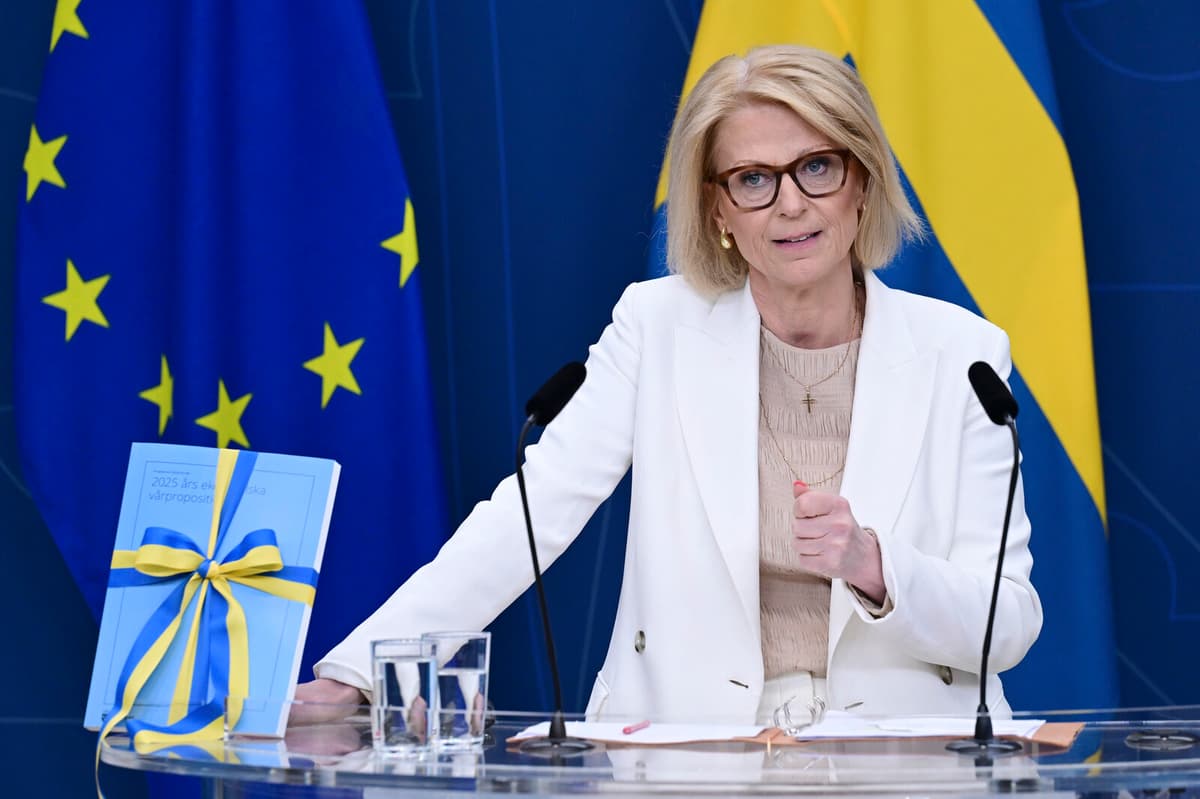And rarely has a spring budget been presented in such an uncertain economic situation. The forecasts it is based on are outdated and the government is already flagging that it is prepared to act with additional support to households and businesses if needed.
President Donald Trump's announcement of significantly increased tariffs has pulled the rug from under the recovery in the Swedish economy that was evident at the end of last year.
The recovery is now broken, according to Elisabeth Svantesson.
There is no doubt that growth will be dampened, she says.
Many risks
The risks lurk on a broad front. The tariffs directly affect Sweden through reduced exports to the USA, but also indirectly as they create great uncertainty on the world's markets.
A worrying aspect is that both households and businesses are waiting with consumption and investments due to all the uncertainty.
We do not know exactly how the USA will handle the tariffs going forward. We hope that this pause is a way for the USA to sit down at the negotiating table with the EU and other countries, but we do not know that at present, says Svantesson.
There are no winners in what we are seeing now.
At home, the government is worried that the low-conjuncture will make it even harder for long-term unemployed to get jobs.
If the turbulence persists, there is also a risk that the financial system will be affected, which would create new and larger problems.
Add to that the risks linked to the German economy and the wars in Ukraine and the Middle East.
It has rarely been as many risks out there as we see now, says Svantesson.
No pandemic-like situation
How hard the recent drama can hit the Swedish economy is unclear. Last autumn, the government hoped that Sweden would emerge from the low-conjuncture by 2025, but at the Ministry of Finance, they are now talking about the recovery possibly being delayed by half a year.
It is clear that the growth forecast from March needs to be revised downwards.
We will return when we see how the development continues, says Svantesson.
In the spring budget, the government proposes measures worth SEK 11.5 billion, which will be added to the budget for 2025. The largest investment is SEK 4.35 billion for increased rot deductions.
For a spring budget adjustment, it is an expansive budget. The government motivates it by wanting to support the Swedish economy and get the wheels turning.
If the situation worsens, the government is prepared to present an additional budget. Sweden's finances are "brutally stable" according to the Minister of Finance, which means that there is room for manoeuvre.
However, it is not a support package like during the pandemic that she is thinking of.
It is not a pandemic-like situation, even if it is uncertain and tough, she says.






